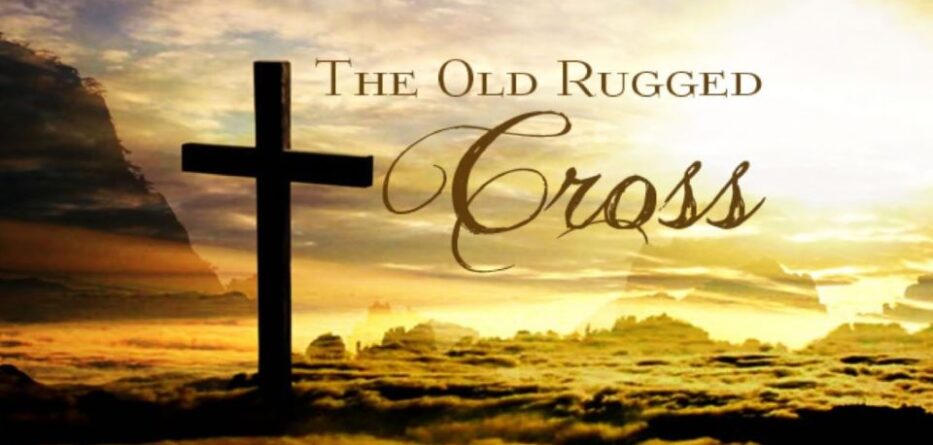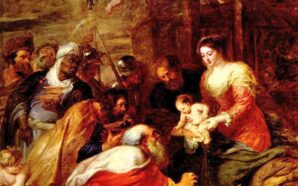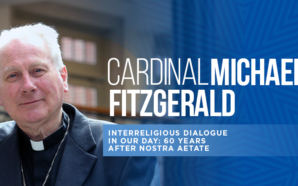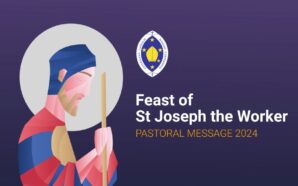Homily for the 4th Sunday of Lent
2 Chronicles 36:14-16,19-23; Psalm 137; Ephesians 2:4-10; John 3:14-21
10 March 2024
In today’s gospel from John, Jesus says to Nicodemus: ‘Whoever lives the truth comes to the light, so that their works may be clearly seen as done in God.’ On Friday, I was privileged to attend the State Funeral for Lowitja O’Donoghue – one who lived the truth, one who came into the light, and one whose profound contribution to the nation was seen to be made with a profound and simple faith in Christ. The nation’s leaders were there, so too were the Aboriginal leaders who are now household names. Adopting Noel Pearson’s phrase, the Prime Minister described her as ‘a leader’s leader’. He spoke of ‘the little girl who longed to be reunited with her mother’ who ‘somehow transcended the weight of her own experience and grew into a woman of grace, moral clarity and profound inner strength. A woman who grew up in hard country, yet emerged as a figure of such generosity.’ Mr Albanese said, ‘We celebrate O’Donoghue’s life of compassion. Her life of courage. A life in which toughness and tenderness existed in perfect symbiosis.’[1] At the service, Paul Kelly played Lowitja’s favourite song, Bob Randall’s Brown Skin Baby:
‘My brown skin baby, they take him away
Between her songs, I heard her say
Police’s been taken my baby away
From white man, boss, the baby I have
Why he let him take baby away.’
Listen at https://soundcloud.com/frank-brennan-6/homily-10324
Lowitja was always a woman of profound Christian faith. She was brought up Baptist but she loved attending St Peter’s Anglican Cathedral in Adelaide to hear the old hymns. In 2005, Pope John Paul II honoured her with a papal award, making her a Dame of the Order of St Gregory the Great. There are not too many Catholics who are papal Dames, let alone Baptists! The state funeral took place in the grand Anglican cathedral in the City of Churches with Bishop Chris McLeod, the Dean of the Cathedral and the National Aboriginal Bishop presiding. Just about every speaker alluded to Lowitja’s rock-solid Christian faith. Her lifelong friend Pat Anderson recalled Lowitja’s deep love for her faith, which gave her joy and ‘sustained her in some hard and dark times of which there were many’.
Back in 1997, Lowitja had addressed the National Press Club recalling the passage of the Native Title Act in 1993. She said: ‘The Native Title Act is a compromise between different and potentially conflicting positions. It represents a carefully constructed balance of interests. It is far from being a caving into the Indigenous position. Nevertheless, the nation passed a crucial test and reached an historic national settlement. To be at that negotiating table was a very exhilarating experience and I regard the outcome as one of the highlights of my career.’[2]
More recently Paul Keating said: ‘That vast achievement was put in place… by her judgment and good sense in taking up the offer of a conscientious government to invite the Aboriginal nations into a process of justice with the sole aim of dealing with the principal Indigenous grievance – the wilful expropriation of their lands.’[3]
Back in 1993, all was not plain sailing. On Black Friday, 8 October 1993, negotiations had broken down and Keating had let fly as only Keating could. He said, ‘I am not sure whether Indigenous leaders can ever psychologically make a change to decide to come into a process, be part of it, and take the burdens of responsibility which go with it.’ Delivering the Lowitja Oration in 2011, he said that he was not sure ‘whether they could ever summon the authority of their own community to negotiate for and on their behalf’. Looking back, he said:
‘I like to think those remarks helped galvanise Lowitja O’Donoghue’s view as to what needed to be done. But as it turned out – only she could do it. She was the chair of ATSIC. This gave her a pulpit to speak from but no overarching authority, much less power. But this is where leadership matters: she decided, alone decided, that the Aboriginal and Torres Strait Islander peoples of Australia would negotiate, and I emphasise negotiate, with the Commonwealth government of Australia – and that the negotiators would be the leaders of the Indigenous land councils. She decided that. And from that moment, for the first time in the 204-year history of the settled country, its Indigenous people sat in full concert with the government of it all.’[4]
Between Black Friday and Ruby Tuesday ten days later when the native title deal was struck, Lowitja worked tirelessly to bring everyone to the table of principled compromise. Through all these complexities and intrigues, Lowitja held a steady course with an unerring instinct about where to find true north.
On Friday, everyone in the cathedral was painfully aware of the result of last year’s referendum which was a disaster for the country and a tragic loss for First Australians. Pat Anderson who was instrumental in the Uluru Dialogues leading up to the referendum reminded the congregation of Lowitja’s words in 1997: ‘We cannot lose the will to resolve these issues, because they will not go away. But tackling them half-heartedly or high-handedly will be a recipe for continuing failure. I believe that solutions are at hand. But they will require determination and patient effort, negotiation and compromise, imagination and true generosity.’[5]
Pat stressed the need for principled compromise. She also observed: ‘In the fierce policy and political battles that went with the job, Lowitja was remarkable in that she never held a grudge. She never held a grudge, she was always willing to work with other people.’
Lowitja O’Donoghue served her people with high dedication and unremitting faith, never bearing a grudge, always willing to forgive, and constantly being committed to principled compromise. The Prime Minister recalled her address to the UN General Assembly in 1992 when she told the community of nations: ‘We have become marginalised in our own country’. As Mr Albanese put it: ‘Yet, showing the mutually reinforcing strength and grace that were such defining features of her character, O’Donoghue spoke of celebrating her people’s survival. A celebration that entailed looking “with hope to our future”. As she put it: “We do not wish to conquer or oppress. Nor indeed do we wish to retaliate for two centuries of injustice. Rather we seek to create a new partnership based upon understanding, co-operation and goodwill. The past cannot be changed; our future is in our hands.”’
We all gave thanks for the life of one who, as Pat Anderson put it, ‘never stopped campaigning for justice for us. She did this with characteristic toughness, humour and grace’. With gusto we all sang the old favourites: The Old Rugged Cross, and We Shall Overcome.
In today’s first reading from the Book of Chronicles, we hear of the suffering and dispossession of the Chosen People. Liberation comes to hand when Cyrus King of Persia proclaims:
‘All the kingdoms of the earth the Lord, the God of heaven, has given to me, and he has also charged me to build him a house in Jerusalem, which is in Judah. Whoever, therefore, among you belongs to any part of his people, let him go up, and may his God be with him!’
Inspired by the profound Christian life and leadership of Lowitja O’Donoghue, we console ourselves with the assurance given to Nicodemus: ‘Whoever lives the truth comes to the light, so that their works may be clearly seen as done in God.’ Mr Albanese described Lowitja as ‘as one of the great rocks around which the river of our history has gently bent, persuaded to flow along a better course’. Inspired by the old hymns as well as the old favourites like The Old Rugged Cross and We Shall Overcome, we commit ourselves to playing our small part in shaping a river course kindly to all and we pray:
By the streams of Babylon
we sat and wept
when we remembered Zion.
On the aspens of that land
we hung up our harps.
For there our captors asked of us
the lyrics of our songs,
And our despoilers urged us to be joyous:
“Sing for us the songs of Zion!”
How could we sing a song of the LORD
in a foreign land?
If I forget you, Jerusalem,
may my right hand be forgotten!
May my tongue cleave to my palate
if I remember you not,
If I place not Jerusalem
ahead of my joy.
From the start of 2024, Fr Frank Brennan SJ will serve as part of a Jesuit team of priests working within a new configuration of the Toowong, St Lucia and Indooroopilly parishes in Brisbane Archdiocese. Frank Brennan SJ is a former CEO of Catholic Social Services Australia (CSSA). Fr Frank’s latest book is An Indigenous Voice to Parliament: Considering a Constitutional Bridge, Garratt Publishing, 2023.
[1] https://www.theaustralian.com.au/commentary/course-of-our-history-shaped-by-a-leaders-leader/news-story/70177374769a677bfaa0ca495e49373c
[2] https://www.austlii.edu.au/cgi-bin/viewdoc/au/journals/IndigLawB/1997/35.html
[3] https://johnmenadue.com/death-of-lowitja-odonoghue/
[4] https://www.dunstan.org.au/wp-content/uploads/2020/05/Lowitja-ODonoghue-Orations-Book_Final.pdf, p. 58.
[5] https://www.austlii.edu.au/cgi-bin/viewdoc/au/journals/IndigLawB/1997/35.html








